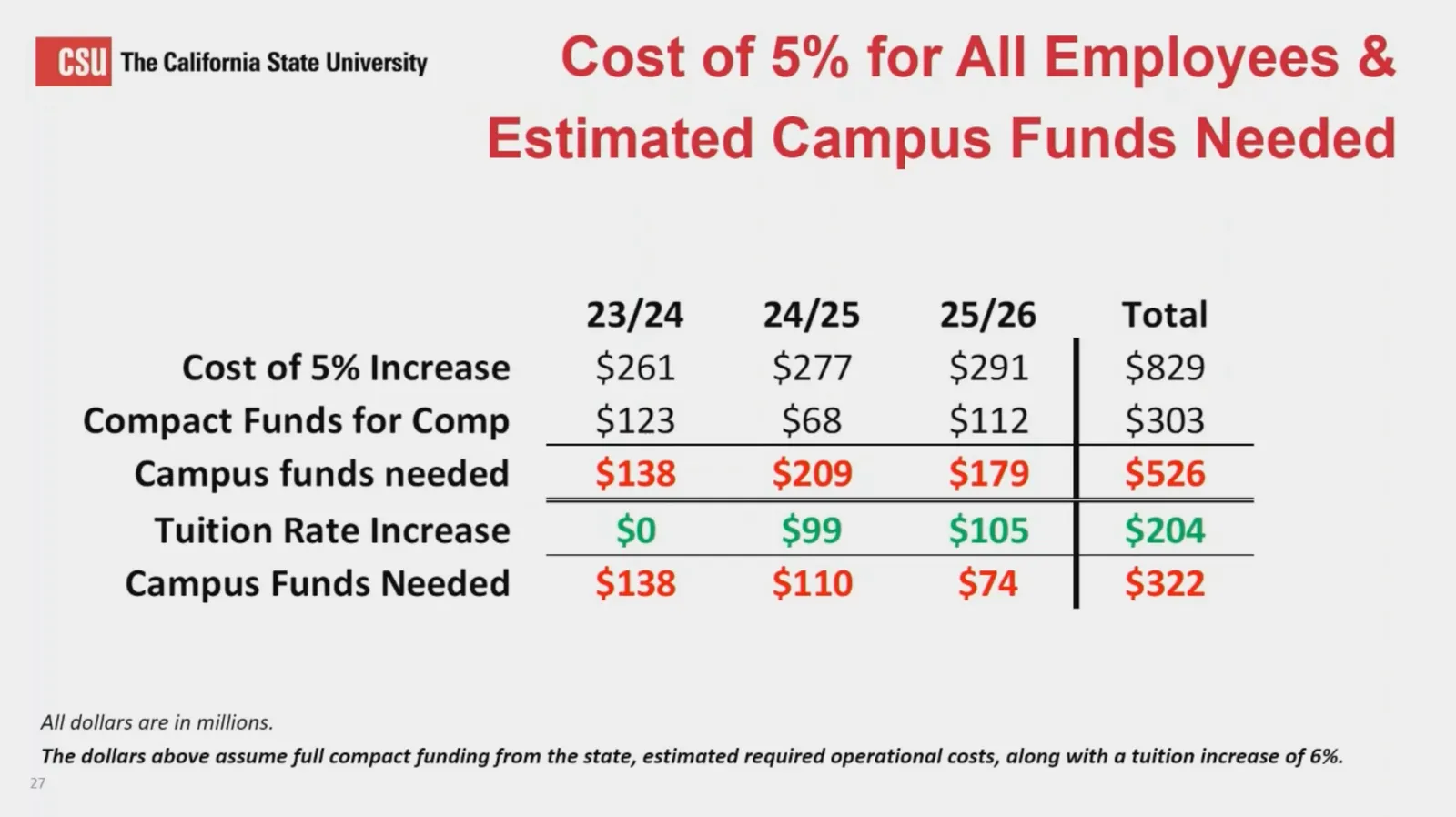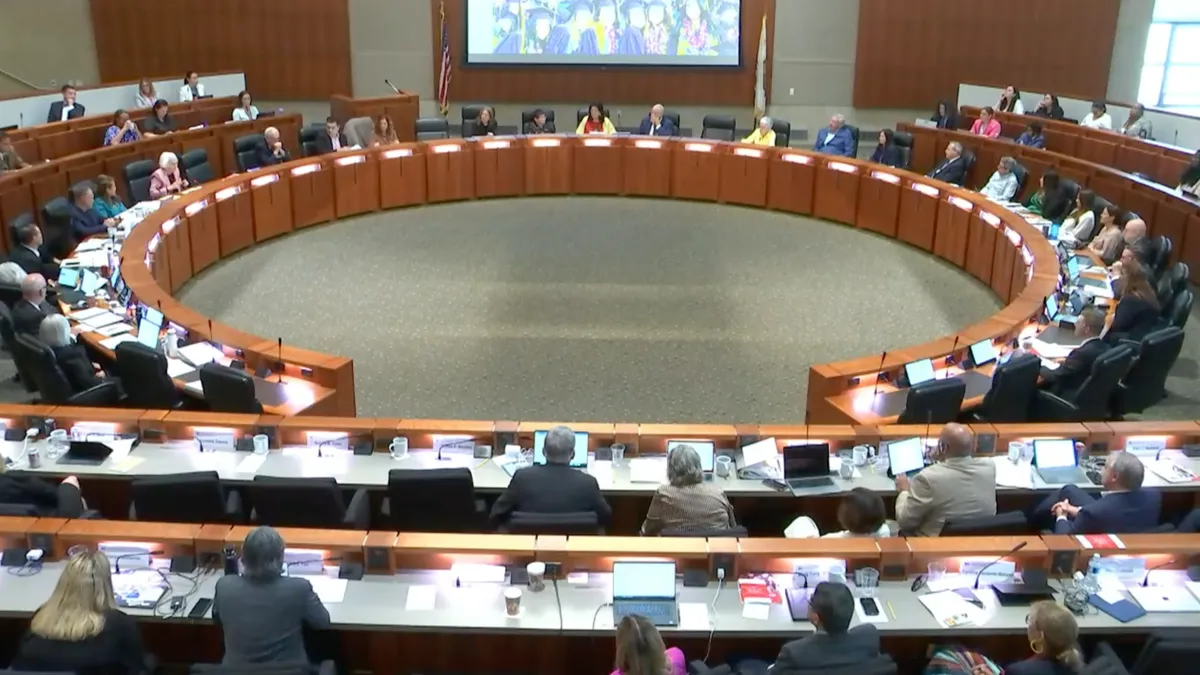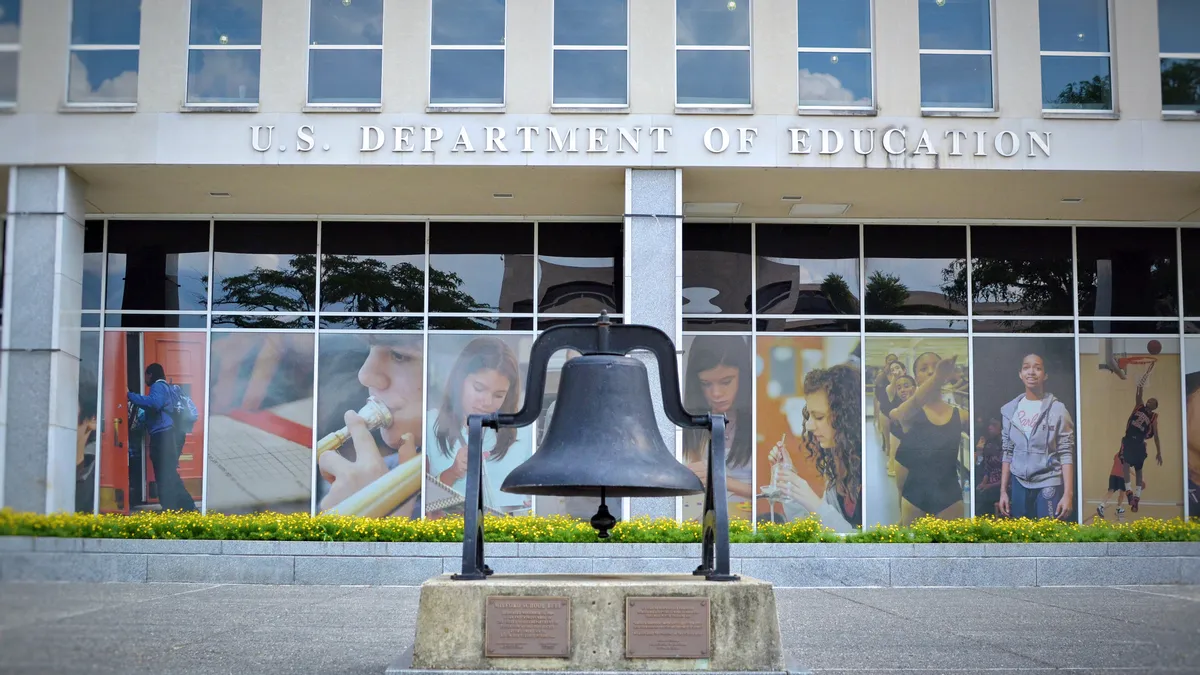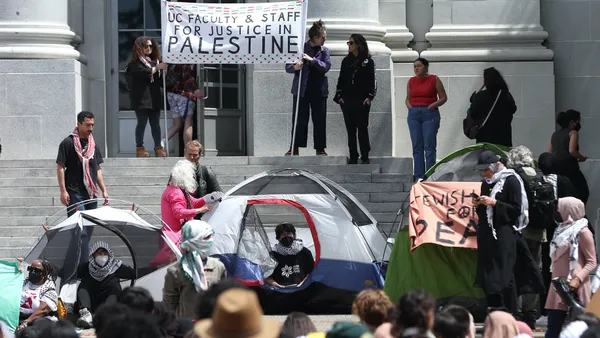Dive Brief:
- The California State University system will raise tuition annually by 6% for the next five years under a plan trustees unanimously approved Wednesday.
- Tuition for all degree programs will increase under the plan. The hike will earn Cal State an additional $148 million in its first year. By five years, it will bring in an extra $840 million in tuition revenue.
- The tuition hikes will help remedy a looming $1.5 billion deficit, though the system projects it will still be in a hole as it weighs employee raises and faces infrastructure costs.
Dive Insight:
A May report recommended Cal State implement the tuition hikes to make up for the budget shortfall. Cal State leaders pitched the increases as a “moderate, gradual, and predictable” salve for some of the system's financial woes.
In the 2021-2022 academic year, Cal State’s revenue only covered 86% of its costs, the May report said. That year, the system operated with a $12.4 billion budget, according to the California legislature’s nonpartisan fiscal office. Officials expect that gap to widen as Cal State faces inflation, aging infrastructure and increasing employee wages.
The system has not raised tuition in 11 of the past 12 years.
Cal State, the country's largest public four-year higher ed system, is often held up as an engine of social mobility for students from underrepresented groups. Almost a third of the system's students are first in their families to attend college, and almost half of students are underrepresented minorities, according to Cal State.
The hike had received strong backlash, with students and faculty protesting outside the Cal State chancellor's office on Tuesday, according to local media reports.
Full-time undergraduates will pay $7,682 yearly in the 2028-29 academic year, up from $5,742 for the current year.
Opponents of the increases said the system caused the budget gap through financial mismanagement, and they worry the consequences will be passed to students. They pointed to the raises Cal State presidents received last year, some amounting to 29% increases.
System leaders said the raises partly meant to compensate for pandemic-era pay freezes.
Trustees said they reluctantly voted in favor of the tuition hikes. They noted that while the plan was unpopular, the system had not found viable alternatives.
"Please know that all of us who are here take this incredibly seriously," Trustee Jose Antonio Vargas said. "I have to vote on what's in front of me — I can't not look at the facts. If we don't do this, there is no alternative path that we can pursue."
Trustee and Finance Committee Chair Julia Lopez agreed, likening the system's financial woes to climate change.
"It will only get worse unless we do something, and we have the opportunity to act now," she said.
Trustees also voted down a proposed amendment to limit the tuition increases to three years.
Even with the new tuition cadence, Cal State will still be facing a budget shortfall.
Over half of the system’s buildings are over 40-plus years old, and the cost of capital renewal is growing by $284 million each year, the May report said.
In addition to infrastructure costs, the system is negotiating with the labor union representing about 29,000 employees, the California Faculty Association.

If Cal State approves a 5% raise for employees — which is still short of the unions' demands — the system's campus fund will still be $322 million short over the next three years, according to a presentation to the trustees Wednesday.
In August, the system and the union announced they would enter into state-administered mediation, after failing to compromise on issues like pay and parental leave.













